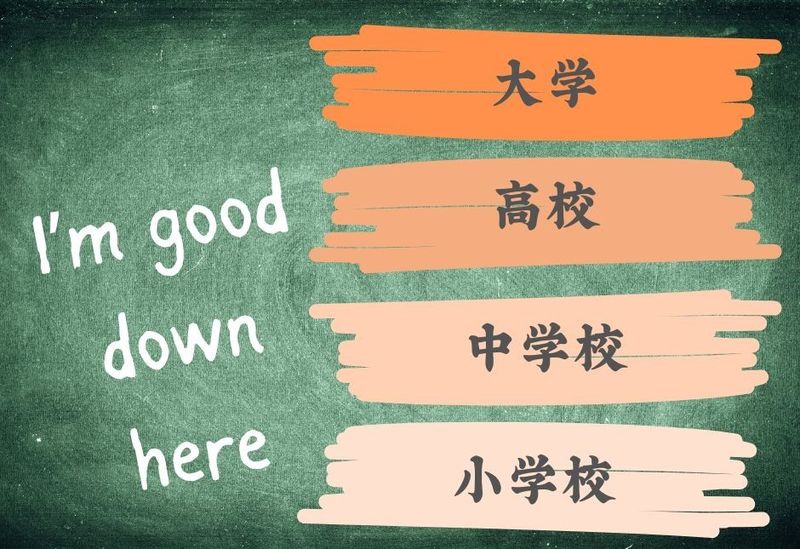Sep 16, 2024
English Language Matters: the “weird” lack of practical in Japan’s academia

Most of my Japan teaching experience is down here, but all of my home country experience was post-secondary and I'm good with that
While waiting for service at a Tokyo business, I struck up a conversation with a fellow foreign resident, talking about the journeys that brought us to Japan. Work came up, and that’s where we got into a deep discussion about teaching in secondary and post-secondary education. I was teaching at a private high school in Tokyo and told her about the courses in which my high school students wrote essays in addition to reading British and American literature. I wondered aloud if moving on to university instruction would be more stimulating.
She shook her head and said she was glad to move on to another career as it was boring! She got tired of trying to get students to communicate in English. While an acclaimed communicator, she wasn't prepared as an English language instructor.
Later, I spoke to other university instructors and discovered many cover the same content at about the level I teach in junior high school. Some of those university instructors were surprised by the classroom practices and the learner achievements I described. I had assumed that university instructors would be far ahead of me when it comes to TESOL (Teaching English to Speakers of Other Languages) best practices, and in turn, pulling their students’ English proficiency up.
I’m not saying I’m a star teacher, but I was prepared with a post-graduate TESOL qualification before I came to Japan and adapted my practice to Japan's classrooms. A lot of the Japanese uni faculty I talked to have graduate degrees without the practica or nuts-and-bolts teacher training that I received.
In conversation with Robert Swier, David Barker of Gifu University points to the elephant in the room when he says “... in Japan, the only requirement for a teacher at a university is a master’s degree, and it doesn’t have to involve any practical element at all. So, you could have a master’s degree in English literature, or history, or politics, or something like that.”
In Barker's plenary speech at JALT 2019, he talks about receiving a visiting Cambridge trainer from London and the weirdness of the experience. The Cambridge trainer lacks the MA demanded by Japan’s universities, and the Japan-based instructors are unqualified to instruct in the program in London. You can see the whole presentation on teacher efficacy on YouTube.
So, while I continue with teacher professional development, I let go of the dream of university teaching. The stimulating and rewarding situation I'm in now draws on my TESOL preparation. I could use the hefty university research budget, but I’m not under pressure to pump out articles like uni faculty are.
See the first post in this series English Language Matters: Teaching Pronunciation.
Images in this post were created with Canva.



0 Comments